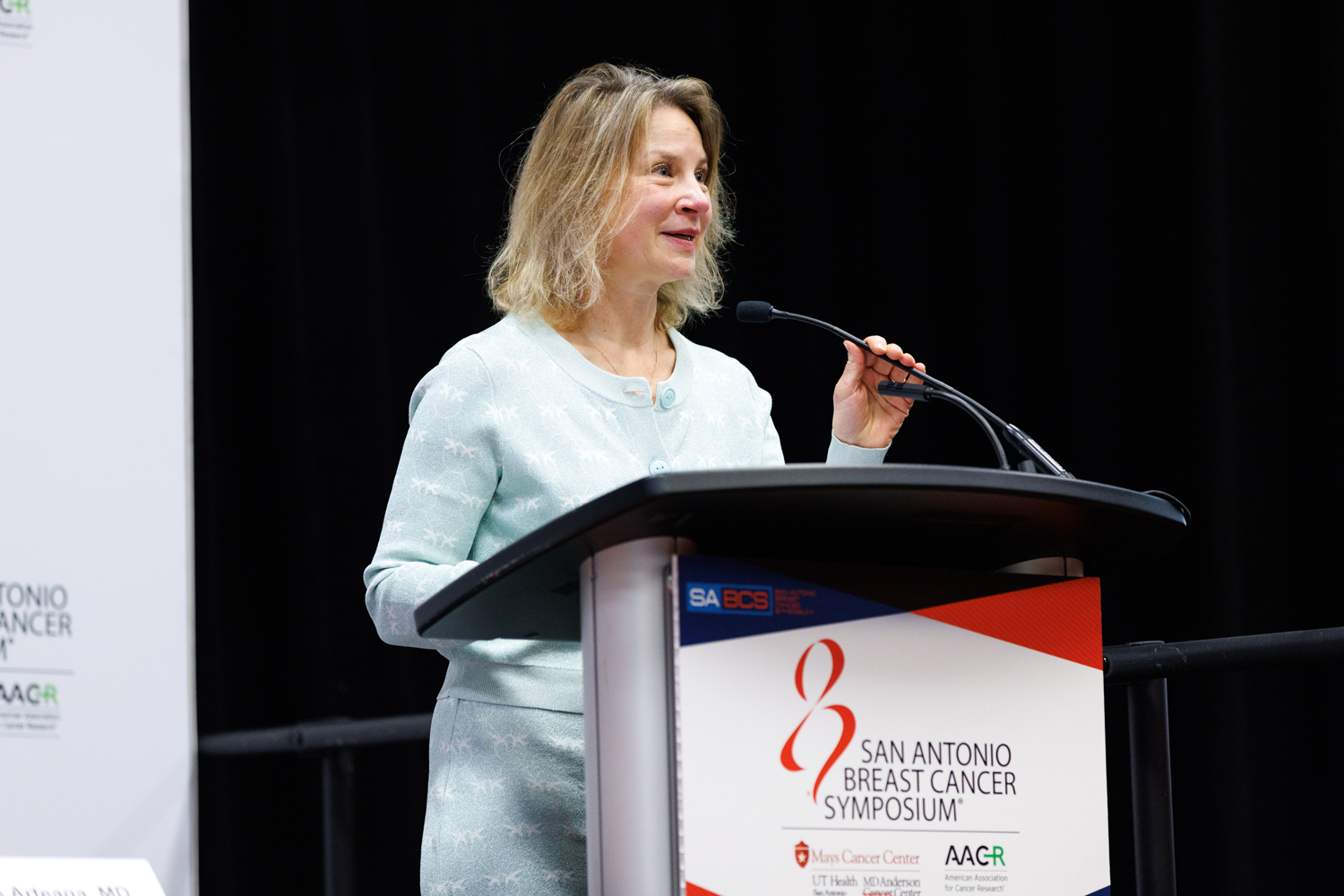PEOPLE WITH METASTATIC BREAST CANCER who participated in a supervised exercise program reported improved quality of life and lower fatigue compared with those who did not partake in the program, according to results of a study presented at the San Antonio Breast Cancer Symposium (SABCS) Dec. 7.
“With these reassuring results, we really have arguments that [exercise] adds to treatment” for these patients, said Anne May, the study’s presenting author and an epidemiologist who focuses on cancer survivorship care at the Julius Center for Health Sciences and Primary Care at University Medical Center, Utrecht, in the Netherlands.
Breast cancer and its treatment can leave patients with physical side effects, such as fatigue and nausea, while also taking a toll on their quality of life. Previous research has found exercise can help counteract these side effects. This led to the August 2022 publication of an ASCO guideline recommending regular exercise during cancer treatment. However, few studies have looked at how physical activity impacts people with metastatic breast cancer.
“There were no studies in the metastatic setting, so we could not publish a guideline on how patients should exercise during their metastatic disease,” said May, who was on the committee that wrote the ASCO guideline. She said that lack of studies inspired researchers to evaluate the effects of exercise in this patient population.
The study included 357 people with stage IV breast cancer in Europe and Australia. The patients, who had an average age of 55, were currently receiving treatment, with the majority taking hormonal therapy and the remainder receiving a combination of chemotherapy and immunotherapy. Participants were randomly split into two groups. While everyone received a physical activity tracker and generic exercise advice, half enrolled in an exercise program.
For six months, people taking part in the program had two sessions per week with a physical therapist or exercise professional that focused on aerobic, balance and resistance exercises. During the following three months, participants could substitute one of the weekly sessions with an unsupervised workout using a smartphone exercise app. Participants completed a fitness test on a stationary bike and questionnaires assessing quality of life and fatigue at the start of the study and then three, six and nine months later.
At all three intervals, participants who were enrolled in the exercise program had higher quality-of-life scores and less fatigue compared with those not assigned to the program. The exercise group also exhibited improved physical fitness, reaching an average resistance in the stationary bike test that was 13% higher than their counterparts not in the program.
Additionally, at the start of the study, 60% of participants reported issues with pain and shortness of breath. While some feared increased physical activity would exacerbate those problems, those in the exercise intervention reported improvement in both areas six months into the study. “This is really reassuring that symptoms do not increase [with] exercise but they decrease,” May said.
Those in the exercise program also reported improved social functioning, meaning they could spend more time with their family and friends without being hindered by side effects. May anecdotally reported many participants said they intended to continue their exercise habits after the study’s end.
Researchers said, based on the results, oncologists should encourage their patients with metastatic breast cancer to exercise.
“We recommend supervised exercise as part of supportive care regimens during palliative treatment,” May said. “And actually, I think that exercise should be part of the cancer treatment of the patients.”
“This is a wonderful study that finds what I think has been obvious to many of us: exercise improves quality of life,” said Carlos Arteaga, SABCS co-director and an oncologist at Harold C. Simmons Comprehensive Cancer Center at UT Southwestern Medical Center in Dallas, who was not involved in the study.
Cancer Today magazine is free to cancer patients, survivors and caregivers who live in the U.S. Subscribe here to receive four issues per year.





